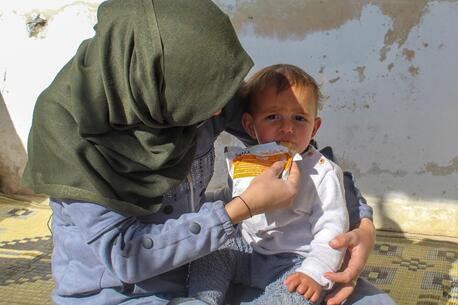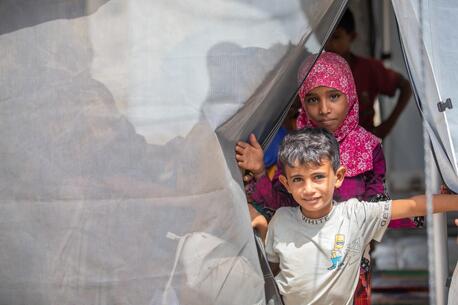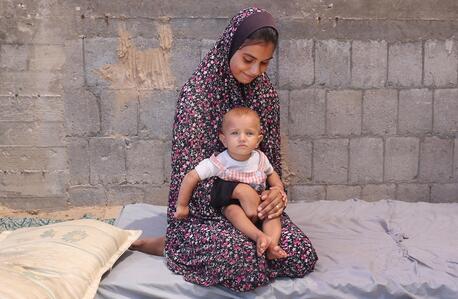
UNICEF Supply Delivery Protects Children's Health in Gaza
Ongoing attacks have crippled Gaza's water and sanitation systems, depriving children of safe water and endangering their health. UNICEF and partners are distributing hygiene kits to families and keeping critical seawater desalination plants running — more support is needed.
Displaced and without access to essential goods and services, Gaza's children face a deepening catastrophe
After well over a year of conflict in the Gaza Strip, more than a million children remain caught in a devastating situation. Attacks on infrastructure and a lack of access to safe water, hygiene and sanitation have left kids vulnerable to the spread of disease. Everyday supplies parents need to keep their children healthy are either unavailable or too expensive for families to afford.
To help meet the overwhelming need, since the start of the conflict, UNICEF and partners have distributed 170,000 hygiene kits to families in Gaza. The kits contain essential supplies like household cleaning products, soap, shampoo, toilet paper, sanitary pads, diapers, toothpaste and toothbrushes.
Watch the video:
UNICEF hygiene kits contain basic products families need to care for their children
The hygiene kits are a lifeline for parents struggling to keep their children healthy in increasingly difficult conditions. An estimated 1.9 million people have been displaced, many more than once. Most are living in improvised tents made of cloth, tarpaulin or plastic sheeting, with little protection from strong winds, dropping temperatures and heavy rains.
In Khan Younis, Fatima noticed a rash spreading on her 8-year-old son' Ahmad's back and forehead. "There's no water to bathe with," said Ahmad. "I am itching all the time and I can't sleep at night. The children refuse to play with me; they are afraid of the rash on my skin."
I am itching all the time and I can't sleep at night. The children refuse to play with me; they are afraid of the rash on my skin. — Ahmad, 8
Wahid, 7, also developed a painful rash. "The rash affected my son's life; the rash is spreading across his legs and he can no longer walk because of the pain," said his mother, Hana. "The water is polluted and salty, and the waste accumulated next to the refugee camps led to the spread of many diseases."
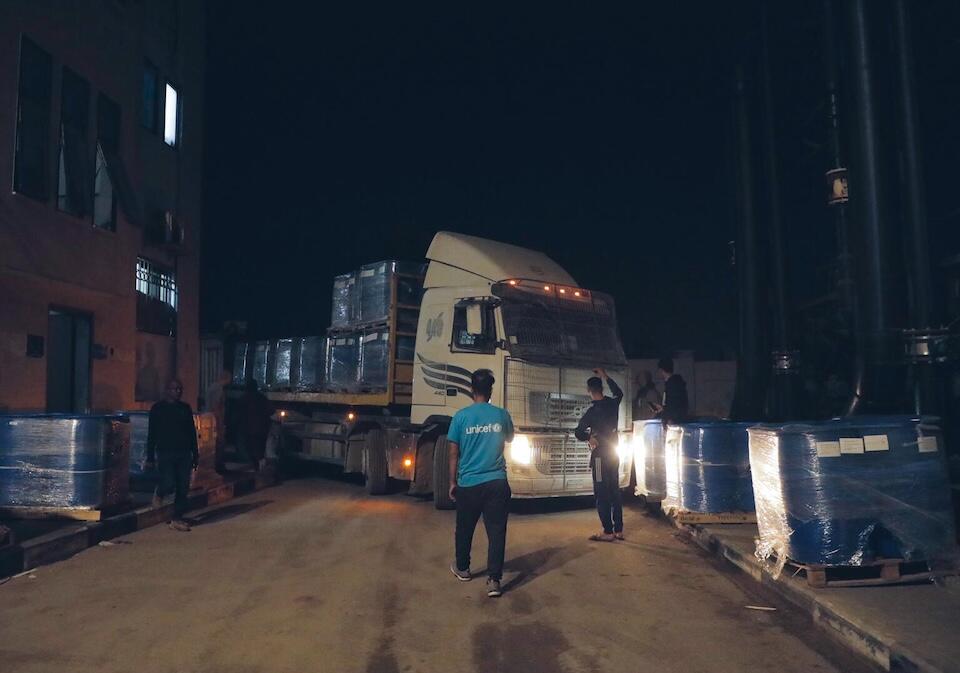
UNICEF seawater desalination plants produce safe drinking water
Attacks on infrastructure have heavily damaged Gaza's water and sanitation systems, reducing water production capacity to just 26 percent. Families have been forced to rely on unsafe water sources, leaving children particularly vulnerable to waterborne diseases.
UNICEF and partners are maintaining provision of water services for people in Gaza, including water trucking. In November, UNICEF delivered 20,000 liters of chlorine to its desalination plant in southern Gaza, to support the production of safe drinking water. Since the start of the war, no chemicals needed for the maintenance of the plant had entered the Strip. With funding from the European Union, UNICEF procured and facilitated the entry of 53,000 liters of chlorine in total, along with other chemicals designated for desalination plants.
Read the latest UNICEF situation report.
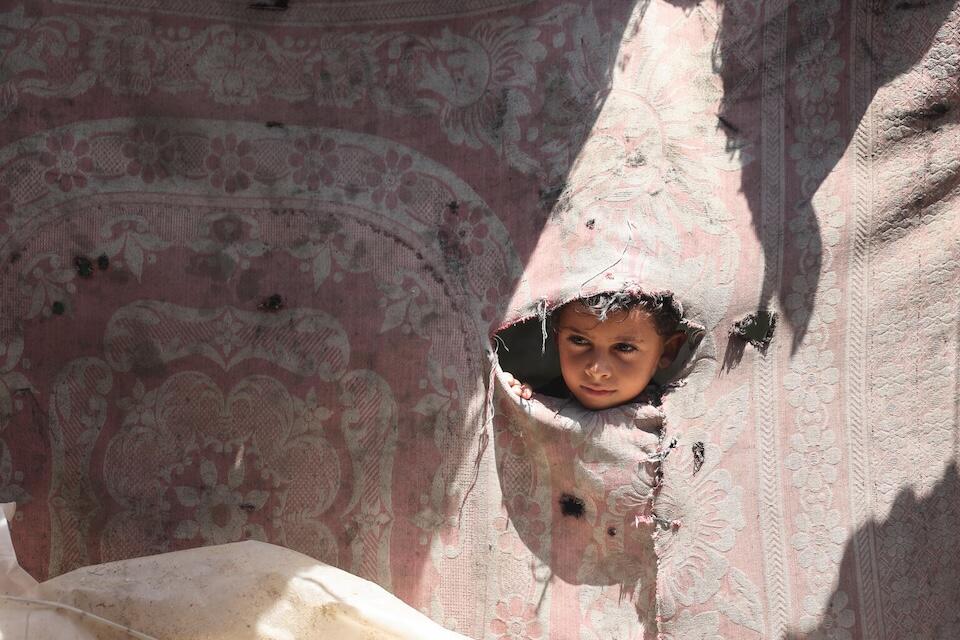
UNICEF is helping families prepare for what will be the hardest winter yet
Children in Gaza already experiencing the trauma of war now face yet another hazard: winter. As cold, wet weather sets in, UNICEF is enhancing shelter conditions, distributing heating equipment and delivering warm clothes and blankets to protect children from the elements.
On Dec. 2, 2024, United Nations Deputy Secretary-General Amina J. Mohammed announced a grim milestone: Gaza now has the highest number of child amputees per capita globally, with many surgeries performed without anesthesia. The risk of famine persists across the Strip, with a strong likelihood that famine is imminent in northern Gaza. Nearly 19,000 children have been hospitalized for acute malnutrition in the past four months alone.
It is beyond time to end this war. — UNICEF Executive Director Catherine Russell
What the children of Gaza need most is an immediate and long-lasting ceasefire. UNICEF "calls on member states to use their influence to ensure respect for international law, prioritizing the protection of children," UNICEF Executive Director Catherine Russell said in November. "It is beyond time to end this war.”
Despite the logistical and security challenges experienced by humanitarian organizations, UNICEF has been able to reach more than 1 million children and their families with its lifesaving response. Wherever children are in need, UNICEF is there to help. Your contribution can make a difference. Please donate today.
HOW TO HELP
There are many ways to make a difference
War, famine, poverty, natural disasters — threats to the world's children keep coming. But UNICEF won't stop working to keep children healthy and safe.
UNICEF works in over 190 countries and territories — more places than any other children's organization. UNICEF has the world's largest humanitarian warehouse and, when disaster strikes, can get supplies almost anywhere within 72 hours. Constantly innovating, always advocating for a better world for children, UNICEF works to ensure that every child can grow up healthy, educated, protected and respected.
Would you like to help give all children the opportunity to reach their full potential? There are many ways to get involved.



